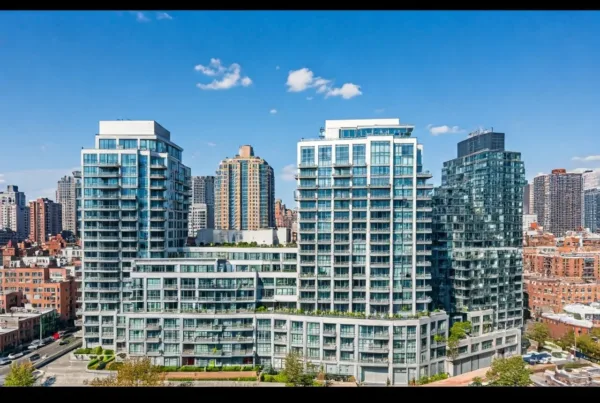Thinking about buying units? Learn about the advantages and disadvantages before making any decisions. Stay informed and make the best choice.
Table of Contents
Hey there, young reader! Have you ever heard of buying units? Well, get ready to dive into the exciting world of home units and why people choose to buy them. It’s going to be a fun and interesting journey!
So, what exactly are home units? When we talk about units, we’re talking about a type of home that’s a bit different from houses or apartments. People buy units for various reasons, and we’re going to explore why they’re so popular. Let’s start this adventure and learn more about buying units!
What is a Unit?
When we talk about buying units, we are referring to a type of home that is different from a traditional house or apartment. A unit is a compact living space that is part of a larger building with multiple units.
Different Types of Units
Units come in various sizes and layouts. There are studio units, which are open-plan spaces with no separate bedroom. Then, there are one-bedroom units with a bedroom, living area, kitchen, and bathroom. Two-bedroom units have two bedrooms along with the other amenities.
Where Can You Find Units?
Units are commonly found in bustling city centers or quieter suburban areas. They can be part of high-rise buildings or smaller complexes. Some units have balconies where you can enjoy the view, while others may have communal gardens for residents to share.
Pros of Buying a Unit
Buying a unit can be a great option if you’re looking for a more budget-friendly home. Units are often cheaper to buy than houses because they are smaller and require less maintenance. Imagine buying a unit is like getting a fun-sized candy bar that costs less than a full-size one!
Convenient Location
Units are usually located in bustling areas close to schools, shops, and parks. Living in a unit means you can easily walk to your favorite places without having to travel far. It’s like having all your favorite hangout spots right in your neighborhood!
Amenities
One of the cool things about buying a unit is the amenities that come with it. You might have access to awesome facilities like swimming pools, gyms, or playgrounds. It’s like having your own mini-vacation spot right at home!
Cons of Buying a Unit
When considering buying a unit, it’s important to also think about the things that may not be so great about this housing option. Let’s take a look at some of the downsides of purchasing a unit.
Limited Space
Units are typically smaller than traditional houses, which means you might have less room to move around and store your things. It’s like trying to fit all your toys in a small box instead of a big toy chest.
Rules and Regulations
Living in a unit often comes with rules that are set by the housing association. These rules can cover things like noise levels, pet ownership, and even the color you can paint your front door. It’s like having a list of chores to follow, but for your home.
Shared Spaces
Another downside of buying a unit is that you may have to share common areas like hallways, gardens, or parking spaces with your neighbors. This means you might have less privacy and control over these spaces. It’s like having to share your favorite toy with others instead of keeping it all to yourself.
| Pros | Cons |
|---|---|
| Ownership of physical asset | High upfront cost |
| Passive income potential | Management responsibilities |
| Tax benefits | Market volatility |
| Diversification of investment portfolio | Limited liquidity |
Tips for Buying a Unit
Looking to buy a unit? Here are some helpful tips to guide you through the process:
Determine Your Budget
Before you start looking at units, it’s essential to figure out how much money you can spend. Think about how much you can afford each month for mortgage payments and other expenses. For example, if you earn $500 per week and your total expenses are $200, how much can you afford to spend on a unit each month?
Check the Location
The location of a unit is crucial. Consider factors like how close it is to your school, work, or favorite places. You want to pick a unit in a safe and convenient location. Think about whether it’s near public transportation or has amenities like parks or shops nearby.
Inspect the Unit
Before buying a unit, make sure to inspect it thoroughly. Check for any damages or issues that need to be fixed. Look at the plumbing, electrical systems, and the overall condition of the unit. You want to make sure you’re getting a unit that is in good shape and worth the investment.
Summary
In conclusion, buying units can be a great option for many people. Units offer affordability, convenient locations, and amenities that make them attractive choices for homebuyers. However, there are also downsides to consider, such as limited space, rules from housing associations, and shared spaces. It’s essential to weigh the pros and cons carefully before deciding if buying a unit is the right choice for you.
Frequently Asked Questions (FAQs)
What is the difference between a unit and an apartment?
A unit is a term used to describe any individual living space within a larger building, like an apartment building or a condo complex. An apartment specifically refers to a unit that is rented out by the owner to a tenant, while a unit can be either rented or owned by someone.
How can I find units for sale?
If you’re looking to buy a unit, there are a few places you can check. You can visit real estate websites like Zillow or Realtor.com, where you can search for units that are currently on the market. You can also reach out to a real estate agent who can help you find units that meet your preferences.
Is buying a unit a good investment?
Begin your search and start earning cash back!
Buying a unit can be a good investment for some people. It can offer a more affordable way to own property, especially in areas where houses are more expensive. However, like any investment, there are risks involved. It’s important to do your research and consider factors like location, market trends, and potential for rental income before making a decision.







